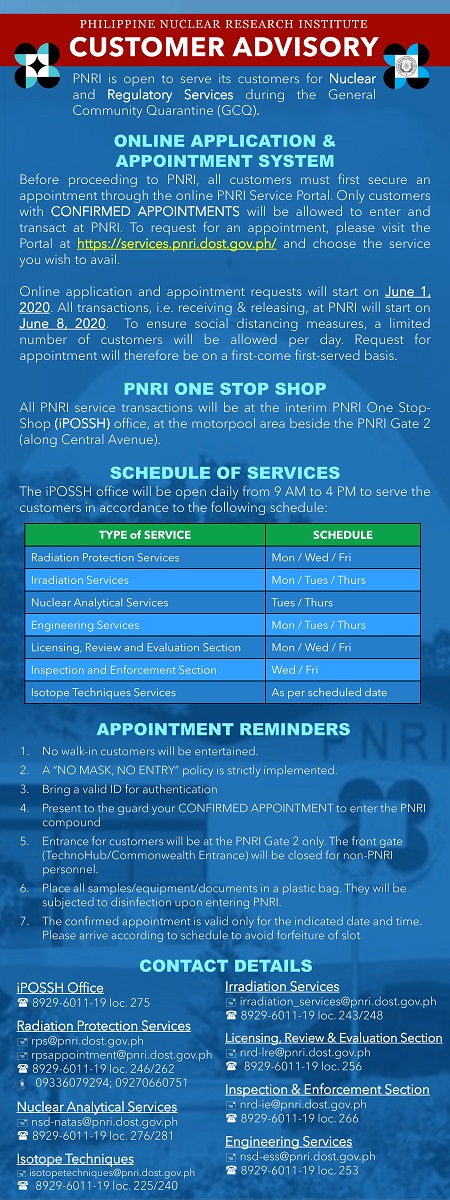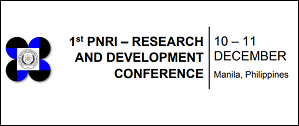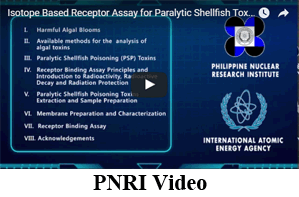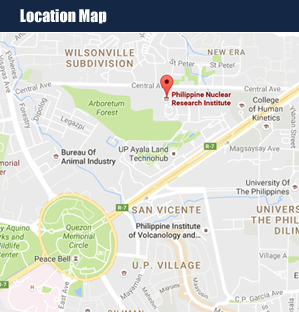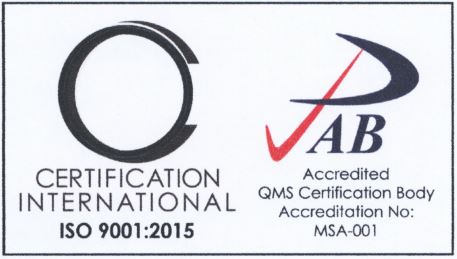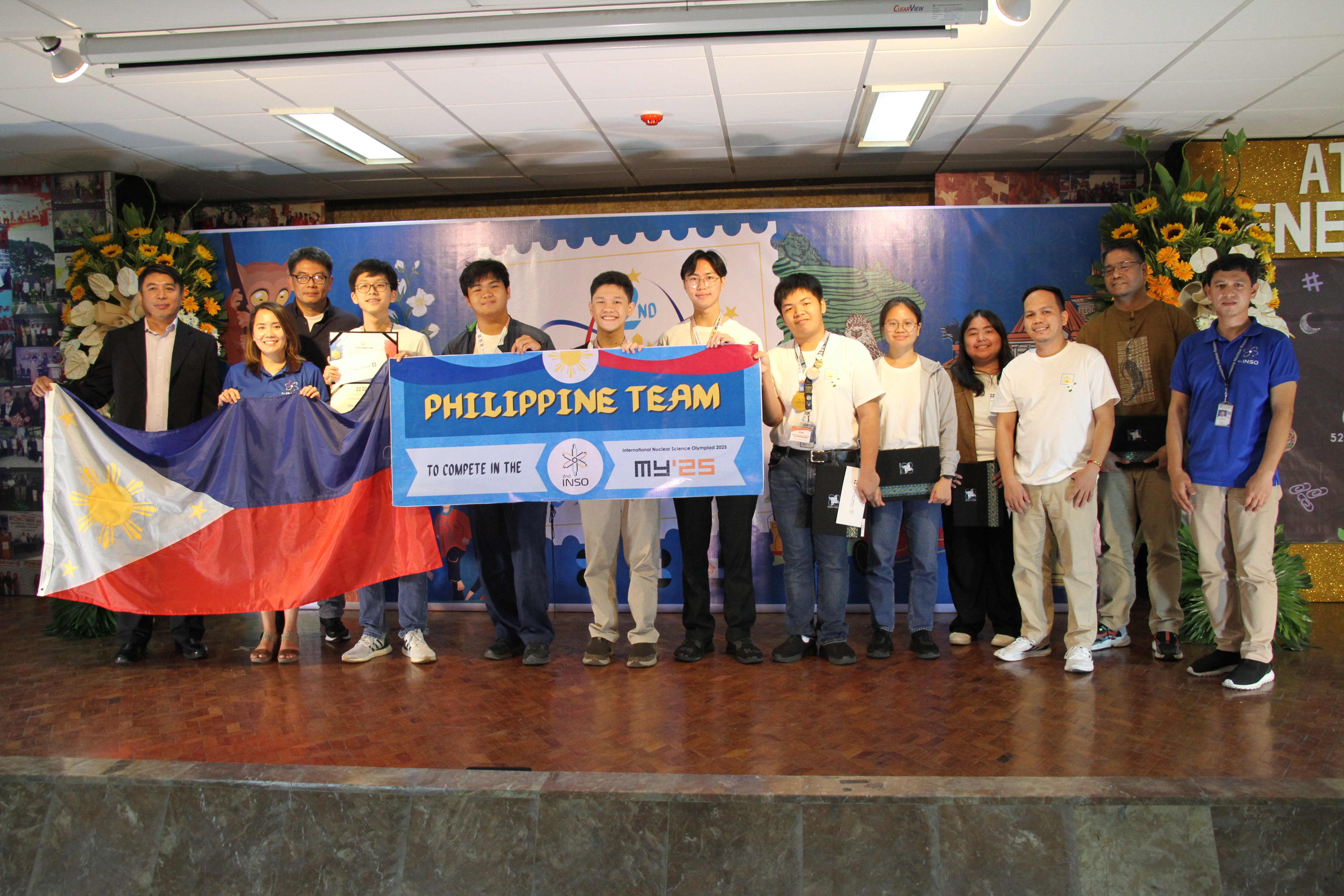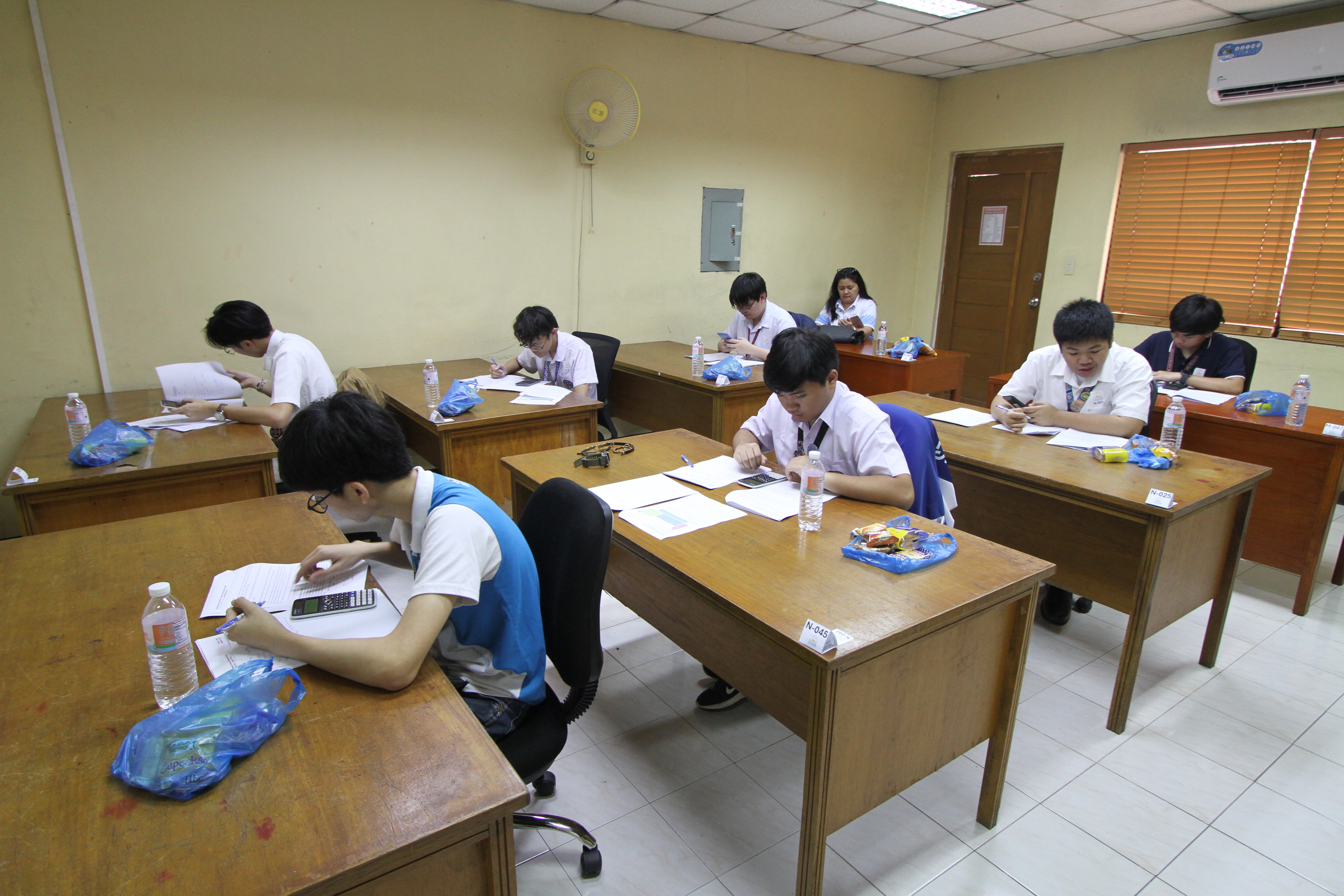Congress passes the PhilATOM Bill
- Details
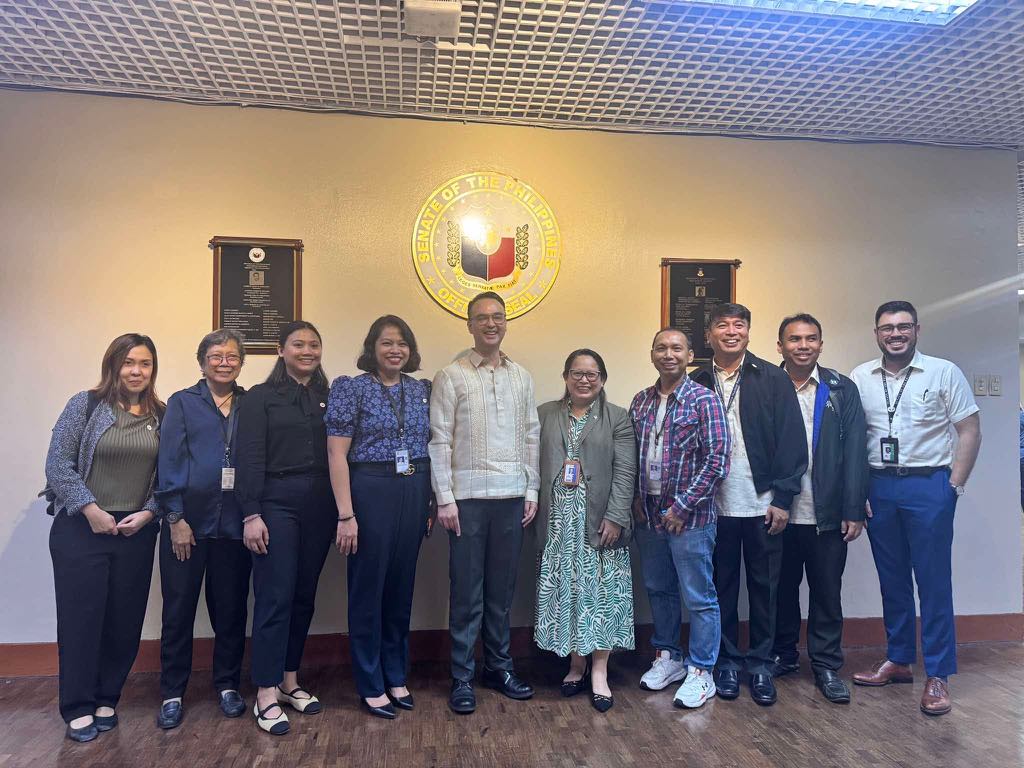
Senator Alan Peter Cayetano with DOST, PNRI and FDA officials after the Bicameral Conference Committee Report for the PhilATOM bill was ratified
Congress passes the PhilATOM Bill
With both Houses of the 19th Congress ratifying the Philippine National Nuclear Energy Safety Act on its final session day, the Department of Science and Technology (DOST) hails the successful passage of the long-awaited PhilATOM bill.
PhilATOM, shorthand for the Philippine Atomic Energy Regulatory Authority, will be the new independent regulatory body consistent with international safety standards to ensure safety, security, and safeguards on the peaceful use of nuclear energy throughout the country.
This measure is a pivotal move to separate regulations from the promotion, research, and development functions of the DOST-Philippine Nuclear Research Institute (DOST-PNRI).
"The DOST is grateful to Congress for the approval of the PhilATOM bill. This is yet another of the landmark measures that we have been pushing, addressing many of the pressing issues in our science and technology landscape," according to DOST Secretary Renato Solidum Jr. "With the creation of PhilATOM, the Philippines is one step closer towards ensuring the safe and peaceful use of nuclear science, and its application to health, agriculture, and industry, aside from power."
Addressing the key issues of regulatory independence will build higher levels of trust and confidence of the public and ensure the sustainability of various applications of nuclear and radiation technologies in agriculture, research, medicine, and industry, and especially for power generation.
“This legislation aligns the nuclear regulation in the Philippines with international standards, and satisfies a main requirement of potential nuclear power operators to have an independent regulatory body,” according to PNRI Director Dr. Carlo Arcilla.
“The passing of the PhilATOM bill will help usher the integration of nuclear power in the Philippine energy mix, helping provide dependable baseload and reliable electricity to consumers and the industry.”
More importantly, the bill will place under PhilATOM’s jurisdiction all matters presently handled by separate agencies mandated to regulate ionizing radiation such as PNRI, currently the authority for nuclear and radioactive materials and their associated facilities and activities.
The Institute shares this distinction with the Food and Drug Administration-Center for Device Regulation, Radiation Health and Research (FDA-CDRRHR), which is in charge of devices electrically generating ionizing radiation such as x-ray devices, linear accelerators, and electron beam facilities.
Unifying all ionizing radiation sources under one regulatory supervision will bring about ease in doing business. It will also harmonize and make consistent the implementation and enforcement of regulations for radiation protection of workers, patients, members of the public, and the environment.
Besides the creation of the PhilATOM, the bill also revamps the current nuclear legislative framework of the country, giving the Philippines an opportunity to create policies and initiatives, in compliance with international safety standards, particularly those of the International Atomic Energy Agency (IAEA).
The bill also has fresh provisions on nuclear safety, security, safeguards, radiation protection, and emergency preparedness and response, reflecting the country’s commitment in fulfilling its long-standing obligations to the IAEA and the international community through various treaties, conventions, and other agreements.
At the House of Representatives, 200 lawmakers voted in favor of approving House Bill 9293 on third reading in November 2023. The effort was spearheaded by Congressman Mark Cojuangco, the bill’s principal sponsor and also chair of the House Special Committee on Nuclear Energy.
Two years later in 2025, its counterpart, Senate Bill 2899, passed another three readings in the upper house with 21 affirmative votes. The sponsorship speech was delivered by Senator Alan Peter Cayetano, chair of the Senate Committee on Science and Technology.
Officials of the DOST-PNRI, FDA-CDRRHR, and the DOST-Department Legislative Liaison Office (DOST-DLLO) actively participated in the various committee hearings and deliberations throughout the entire legislative process.
“We thank the great efforts of PNRI, FDA, the DOST and Congressional staff who spent many hours crafting and revising various versions of this law, which has been pending for almost twenty years,” said DOST PNRI Director Arcilla.
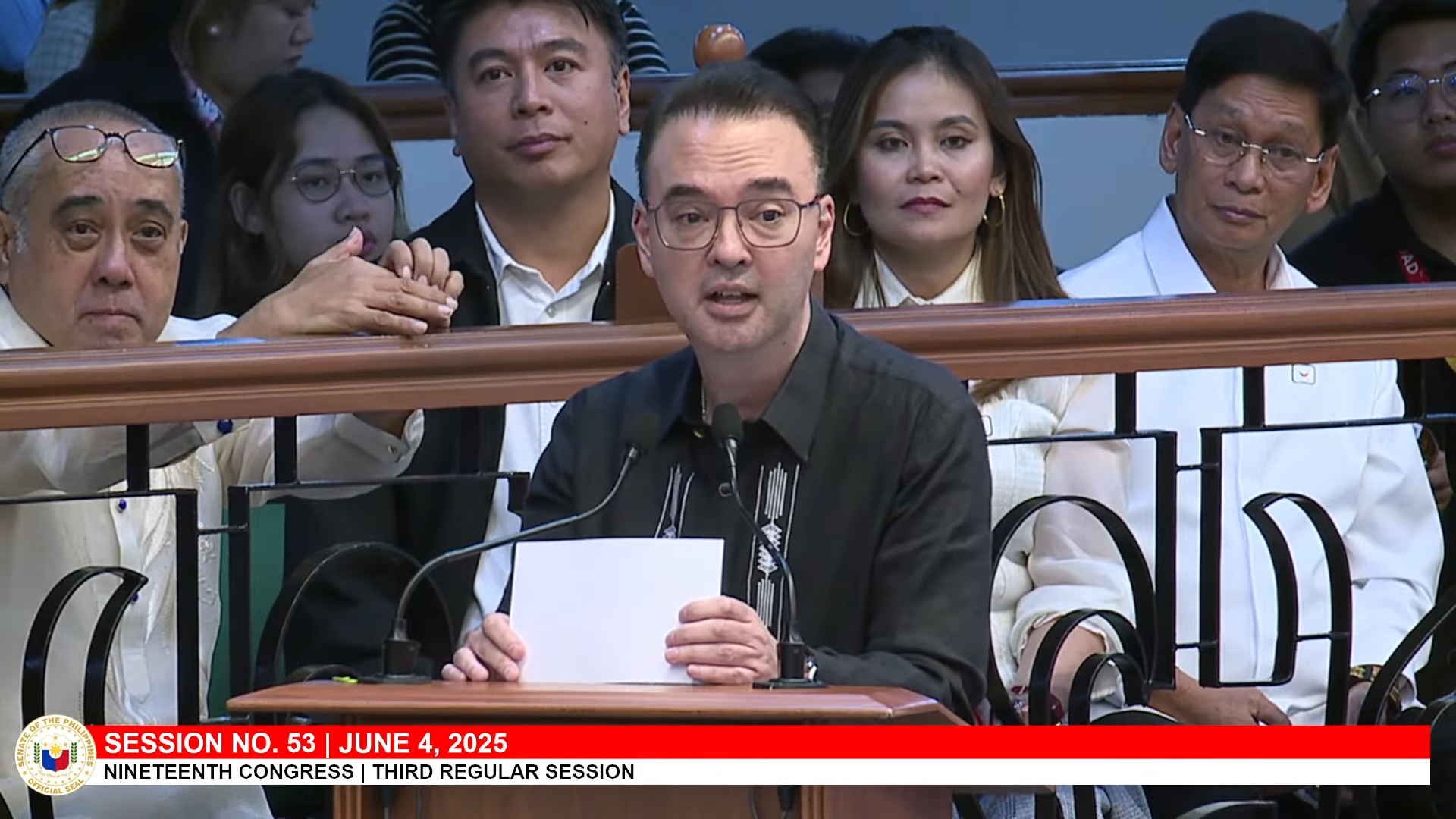
Senator Alan Peter Cayetano after the bill’s Second Reading, with DOST and PNRI officials behind in support of the bill’s passage (Photo Screenshot from the Senate of the Philippines)

Congressman Mark Cojuangco (seated third from left) during one of the hearings of the House Special Committee on Nuclear Energy (Photo from the House of Representatives)
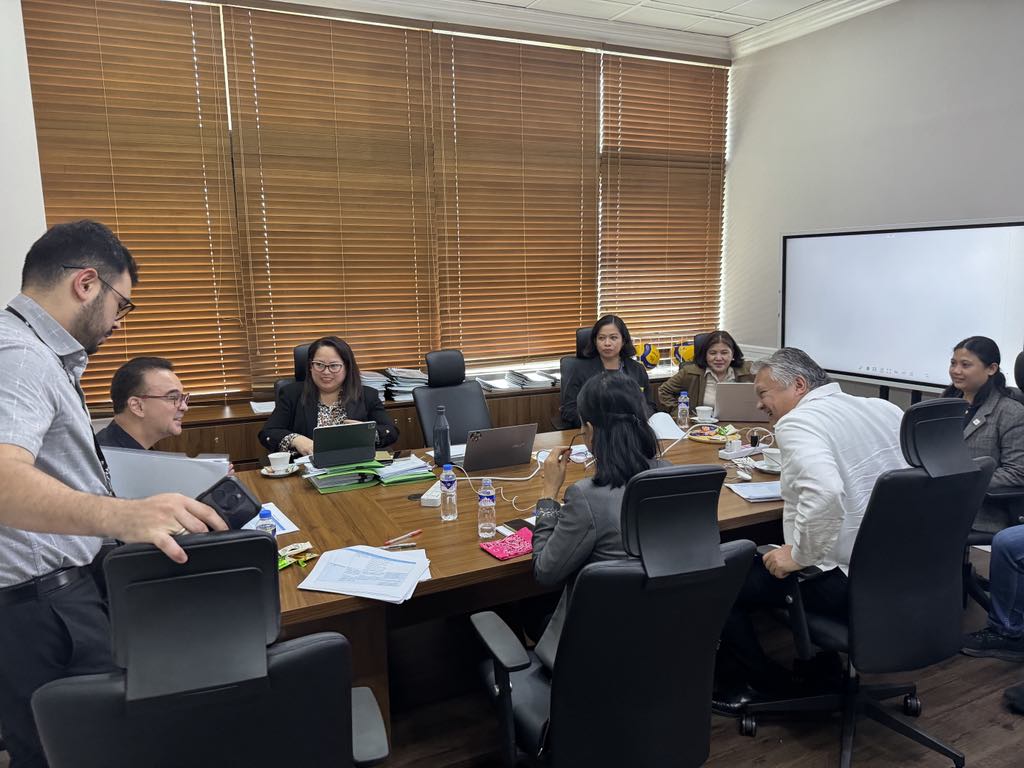
Senator Cayetano and Congressman Cojuangco during the Bicameral Conference Committee meeting, with PNRI, FDA, DOST and legislative staff hard at work reconciling the provisions of the House and Senate bills
DOST presents PH nuclear science olympiad winners, to vie in Malaysia for int'l tilt
- Details
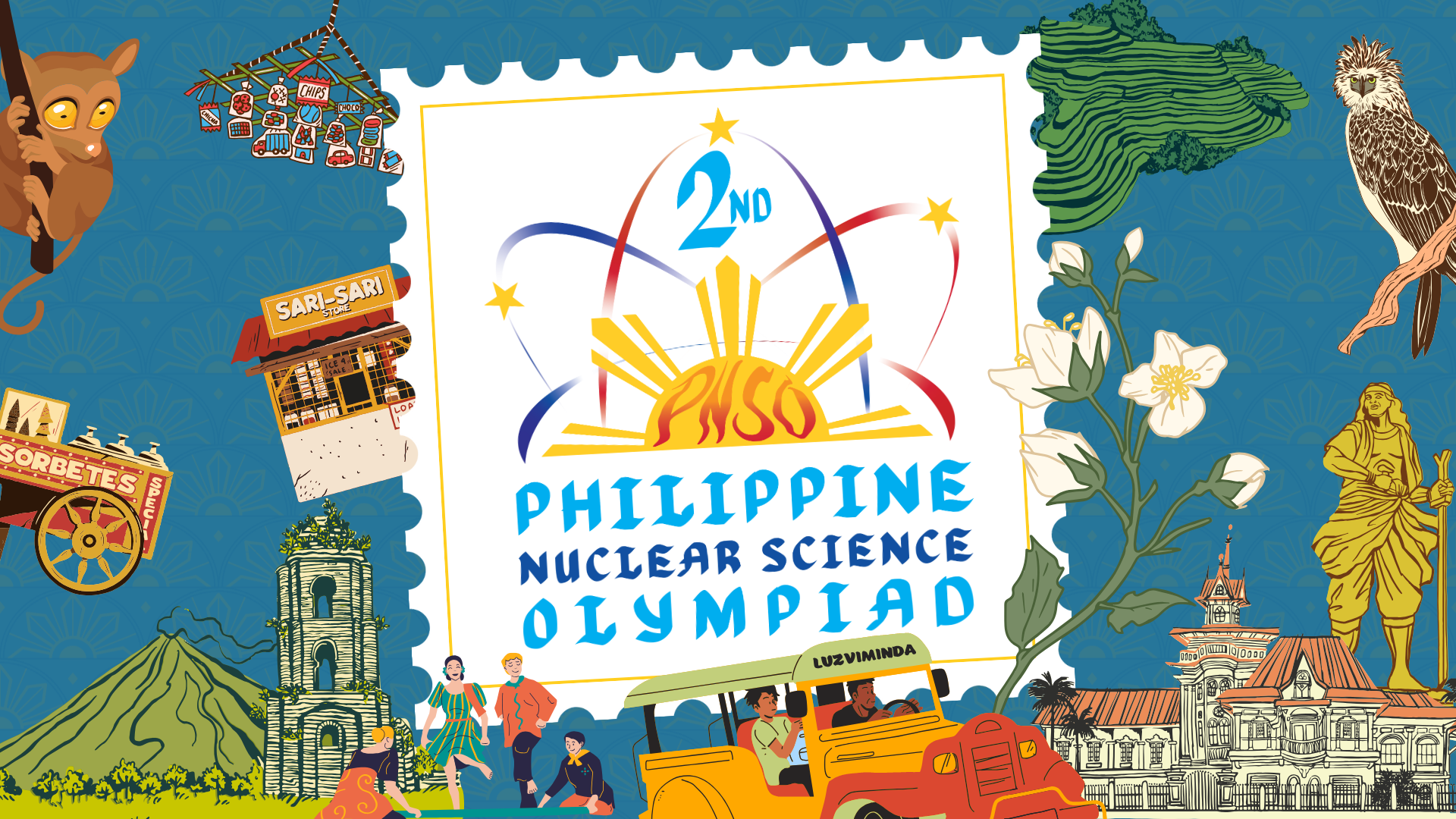
The top five finalists receive their awards during the closing of the 2nd PNSO
The competing students working on their computations during the Team Selection Test at the final round of the 2nd PNSO on May 15
DOST presents PH nuclear science olympiad winners, to vie in Malaysia for int'l tilt
The Department of Science and Technology – Philippine Nuclear Research Institute (DOST-PNRI) recently presented the five students who aced the 2nd Philippine Nuclear Science Olympiad (PNSO) held May 15 in Quezon City.
Leading the pack is Wins Keinrich Chen of Saint Jude Catholic School, followed by second placer Jeremiah Auza of the Philippine Science High School (PSHS) Central Visayas Campus, who was previously the fourth placer in last year’s Olympiad.
They were followed, respectively, by third placer Shaun Mannix Yap of Saint Jude Catholic School, fourth placer Nouel Christian Amaguin of Manila Science High School, and fifth placer Thomas Eugene Leung of PSHS Cordillera Administrative Region.
The five students will form the team to represent the Philippines at the 2nd International Nuclear Science Olympiad (INSO) to be held in Malaysia from July 30 to August 6 this year.
Read more: DOST presents PH nuclear science olympiad winners, to vie in Malaysia for int'l tilt
Filipino radiation tech goes rad at ICARST 2025 in Vienna, Austria
- Details
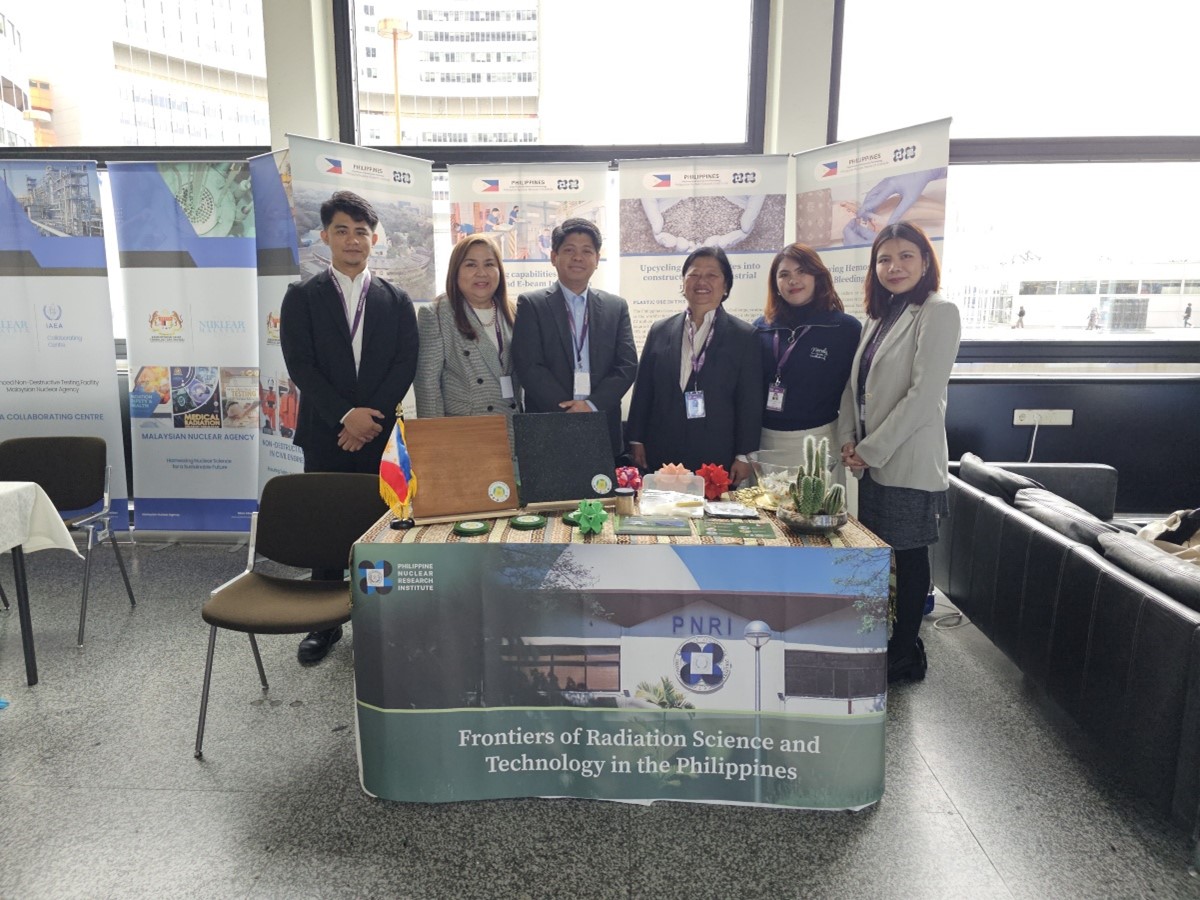
Filipino radiation tech goes rad at ICARST 2025 in Vienna, Austria
Scientists and researchers from the DOST-Philippine Nuclear Research Institute (DOST-PNRI) exude an international level of "rad" as they showcased the country's latest innovations in radiation processing at the 3rd International Conference on Applications of Radiation Science and Technology (ICARST) in Vienna, Austria.
These include the Post-radiation Reactive Extrusion (PREx) Plastics Project, a research initiative which aims to use electron beam technology for the reprocessing and upcycling of plastic waste into new products that can be used for industries such as in construction and manufacturing.
The Institute also featured its polymer-modified hemostatic dressings for stopping bleeding in emergency and medical settings, as well as as its pioneering PHILGamma and Electron Beam Irradiation Facilities.
Read more: Filipino radiation tech goes rad at ICARST 2025 in Vienna, Austria
PNRI experts at Nuclear Science CAMP 2025
- Details
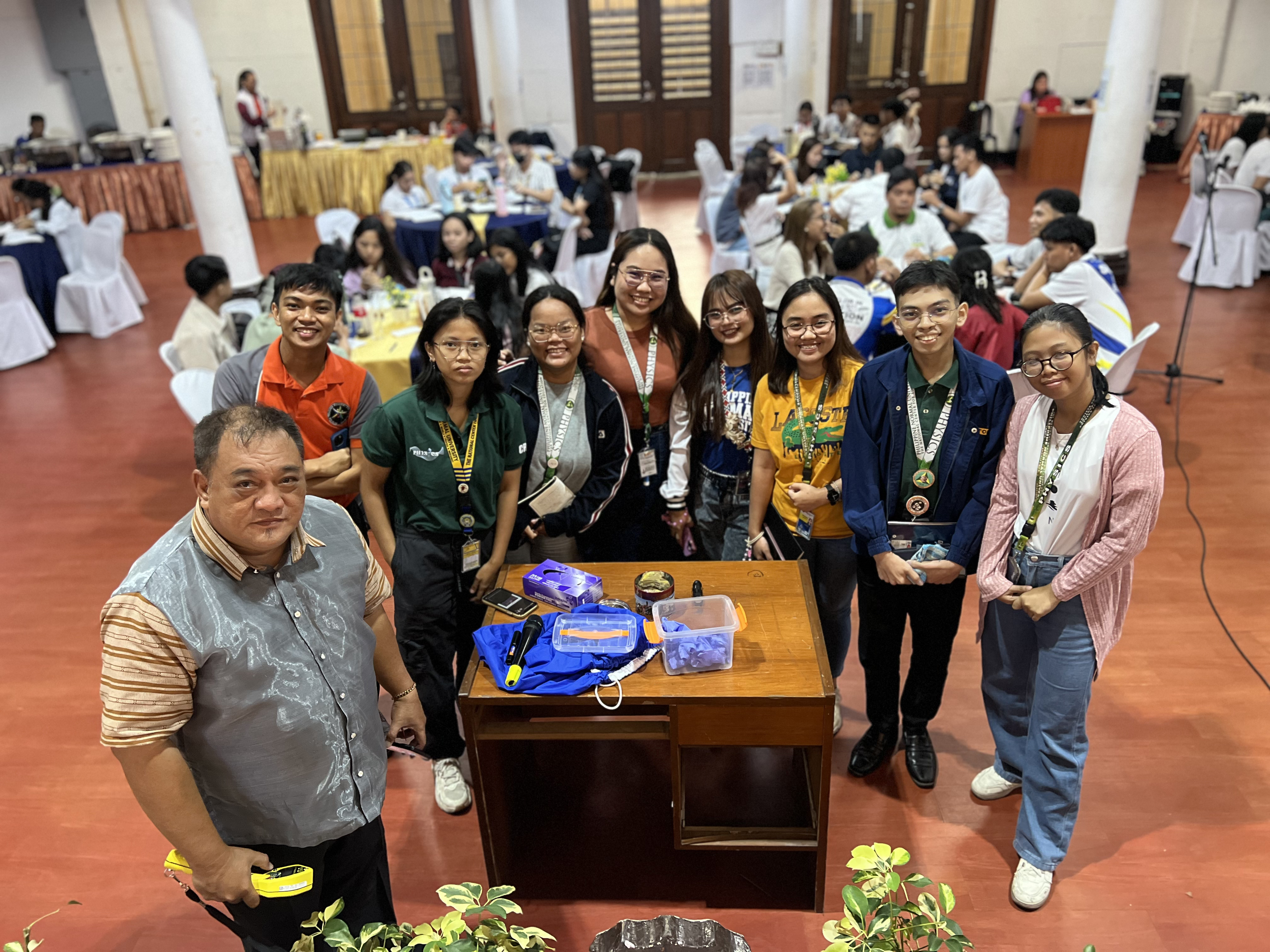
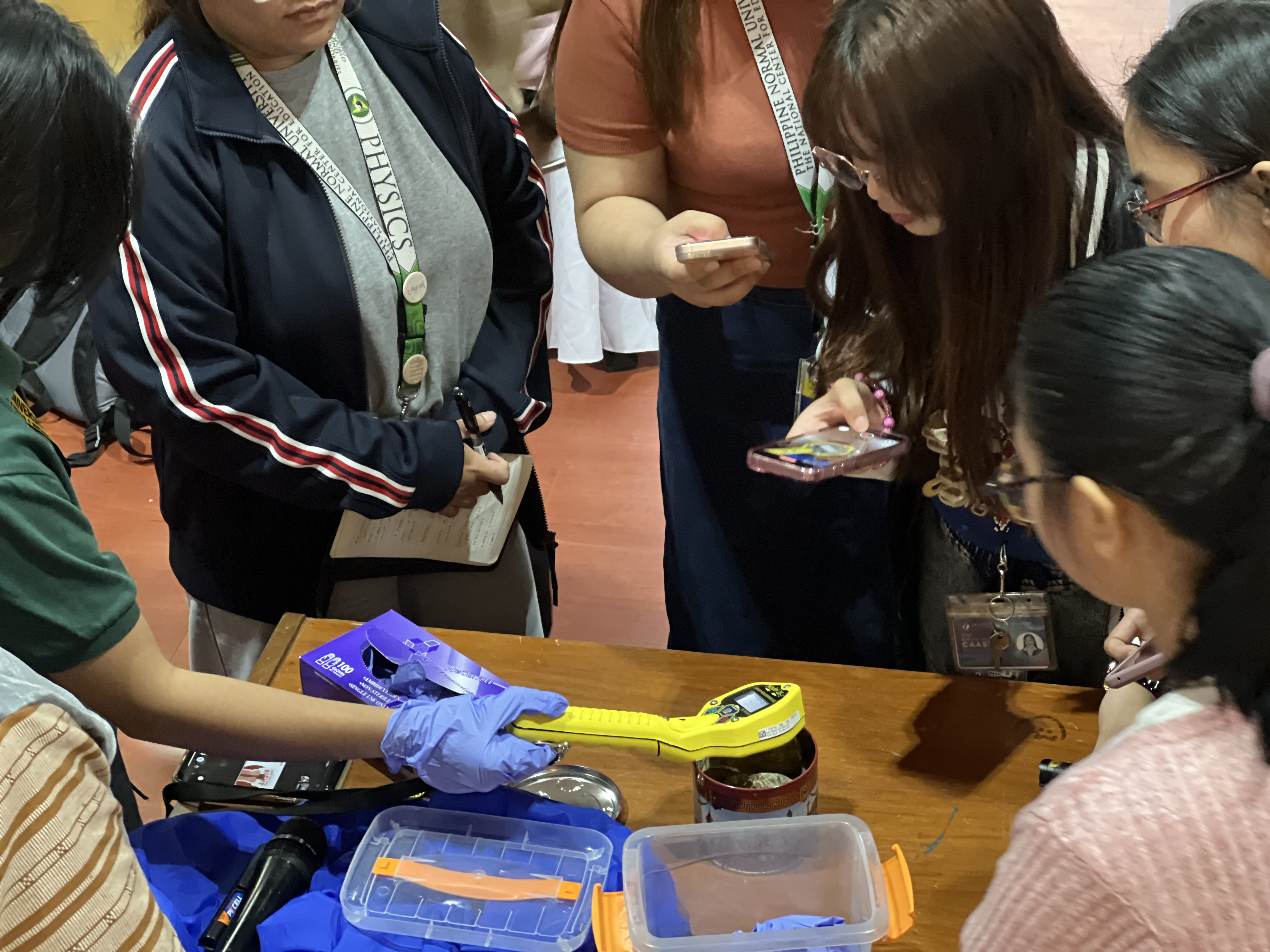
Photos by DOST-SEI
PNRI experts at Nuclear Science CAMP 2025
Experts from the DOST-Philippine Nuclear Research Institute (DOST-PNRI) showcased the various applications of nuclear science and technology to the participants of the Nuclear Science CAMP (Capacitating and Mentoring Program) from April 29 to 30, 2025
Spearheaded by the Science Teacher Academy for the Regions (STAR) of the Department of Science and Technology-Science Education Institute (DOST-SEI), the two-day camp was hosted by the Philippine Normal University (PNU) with various pre-service and faculty members from all its campuses as participants.















